Ditapis dengan
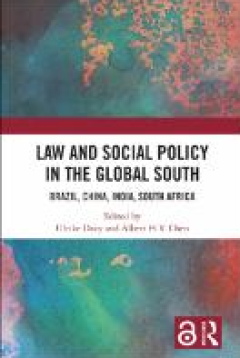
Law and Social Policy in the Global South: Brazil, China, India, South Africa
The book is an in-depth study of the origins and the trajectories of the law governing social policies in Brazil, China, India, and South Africa, four middle-income countries in the global South with a history in social policy making that starts in the 1920s. The policies of these countries affect almost half of the world’s population. The book takes the legal framework of the policies as a s…
- Edisi
- -
- ISBN/ISSN
- 978-1-003-24282-6
- Deskripsi Fisik
- 281 hlm.
- Judul Seri
- -
- No. Panggil
- -
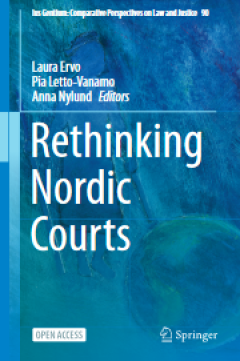
Rethinking Nordic Courts
This open access book examines whether a distinctly Nordic procedural or court culture exists and what the hallmarks of that culture are. Do Nordic courts and court proceedings share a distinct set of ideas and values that in combination constitute the core of a regional legal culture? How do Europeanisation, privatisation, diversification and digitisation influence courts and court proceedings…
- Edisi
- -
- ISBN/ISSN
- 978-3-030-74851-7
- Deskripsi Fisik
- 304 hlm.
- Judul Seri
- -
- No. Panggil
- -
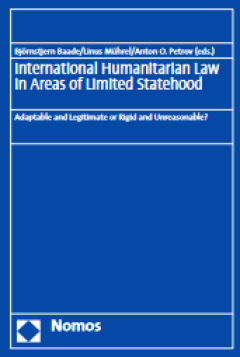
International Humanitarian Law in Areas of Limited Statehood: Adaptable and L…
Areas of limited statehood, in which the territorial State lacks effective control, either completely or in part, challenge International Humanitarian Law in various ways. This volume explores if and how the law adapts to these challenges on the basis of mainly two legal issues: detention and investment protection in (non-)international armed conflict. Does a sufficient legal basis exist for th…
- Edisi
- -
- ISBN/ISSN
- 978-3-8452-8955-7
- Deskripsi Fisik
- 251 hlm.
- Judul Seri
- -
- No. Panggil
- -
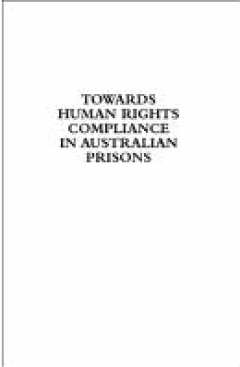
Towards Human Rights Compliance in Australian Prisons
Imprisoned people have always been vulnerable and in need of human rights protections. The slow but steady growth in the protection of imprisoned people's rights over recent decades in Australia has mostly come from incremental change to prison legislation and common law principles. A radical influence is about to disrupt this slow change. Australian prisons and other closed environments will s…
- Edisi
- -
- ISBN/ISSN
- 978-1-760-46401-1
- Deskripsi Fisik
- 368 hlm.
- Judul Seri
- -
- No. Panggil
- -
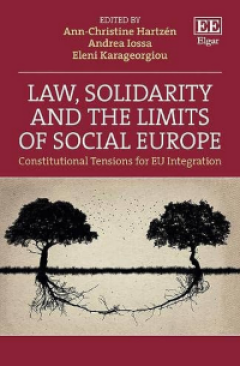
Law, Solidarity and the Limits of Social Europe: Constitutional Tensions for …
This thought-provoking book examines the socio-legal mechanisms that drive EU constitutional tensions, as well as the role of principles and values in re-directing EU law and policy towards a democratic Social Europe. It addresses the current limits of Social Europe in relation to different areas of EU law, offering a critical assessment of the present status of EU integration. Covering areas …
- Edisi
- -
- ISBN/ISSN
- 978-1-80088-551-6
- Deskripsi Fisik
- 236 hlm.
- Judul Seri
- -
- No. Panggil
- -
 Karya Umum
Karya Umum  Filsafat
Filsafat  Agama
Agama  Ilmu-ilmu Sosial
Ilmu-ilmu Sosial  Bahasa
Bahasa  Ilmu-ilmu Murni
Ilmu-ilmu Murni  Ilmu-ilmu Terapan
Ilmu-ilmu Terapan  Kesenian, Hiburan, dan Olahraga
Kesenian, Hiburan, dan Olahraga  Kesusastraan
Kesusastraan  Geografi dan Sejarah
Geografi dan Sejarah